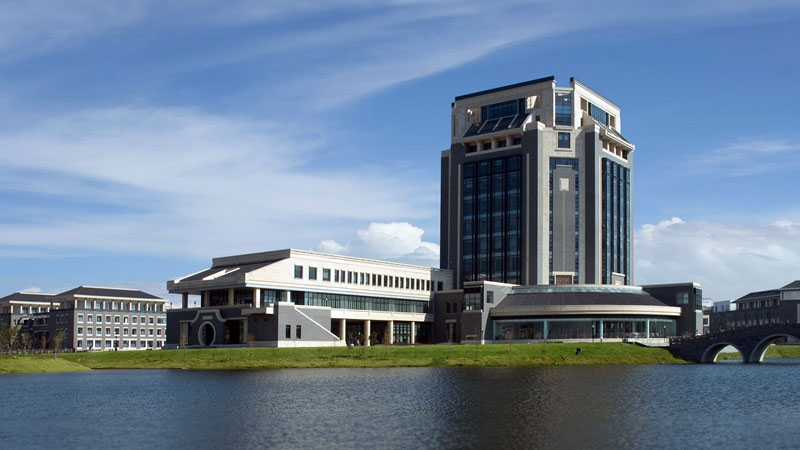Exclusive content

A team from Shanghai Ocean University, led by Xugan Wu, Director of the Research Center on Environmental Ecology and Fish Nutrition, engaged in a pivotal online meeting with the Fisheries Administration of Cambodia’s Ministry of Agriculture, Forestry and Fisheries. Co-chaired by Thay Somony, Director of the Department of Aquaculture Development, to evaluate the ongoing rice-shrimp farming endeavors in Cambodia’s Takeo province while delving into the prospective collaborative efforts for rice-fish farming in the year 2024.
Training and Outreach Initiatives
Integral to the meeting’s agenda was the dissemination of knowledge and resources to bolster the rice-fish farming community in Takeo province. To this end, a training session was conducted, focusing on the intricacies of rice-shrimp farming, accompanied by the provision of the “Rice-Fish Farming Manual Book” to local farmers. Ten farmers from diverse districts within Takeo province, under the guidance of Ouk Hak, Deputy Chief of Takeo Fisheries Administration Cantonment, actively participated in the enriching session, each receiving a manual book to further their understanding and implementation of rice-fish farming techniques.
Xugan Wu and Thay Somony shed light on the progress and envisioned trajectory of the collaborative project titled “Technical Cooperation on Rice-Fish and Personnel Training in the Lancang-Mekong Region,” funded by the Asian Cooperation Funds. Emphasizing the need for expanding the reach of rice-fish farming, both parties underscored the imperative of selecting and empowering more demonstration rice-fish farmers. Furthermore, the initiative seeks to develop novel rice-fish models within Cambodia to mitigate farming and market risks associated with this burgeoning agricultural practice.
Knowledge Exchange and Empowerment
A pivotal aspect of the meeting was the contribution of expertise by Virakbot Hou, a Cambodian student enrolled at Shanghai Ocean University. Hou imparted valuable insights on “key technology on rice – all male freshwater giant prawn farming in tropic areas,” further enriching the collective understanding of sustainable aquaculture practices among the attendees.
Expressing gratitude for the collaborative efforts and knowledge-sharing endeavors, Thay Somony extended appreciation to Shanghai Ocean University and the Asian Cooperation Funds. Recognizing the significance of expertise exchange and resource provision, Somony highlighted the pivotal role these initiatives play in enhancing the livelihoods of rice-fish farmers by fostering the adoption of innovative techniques and technologies.